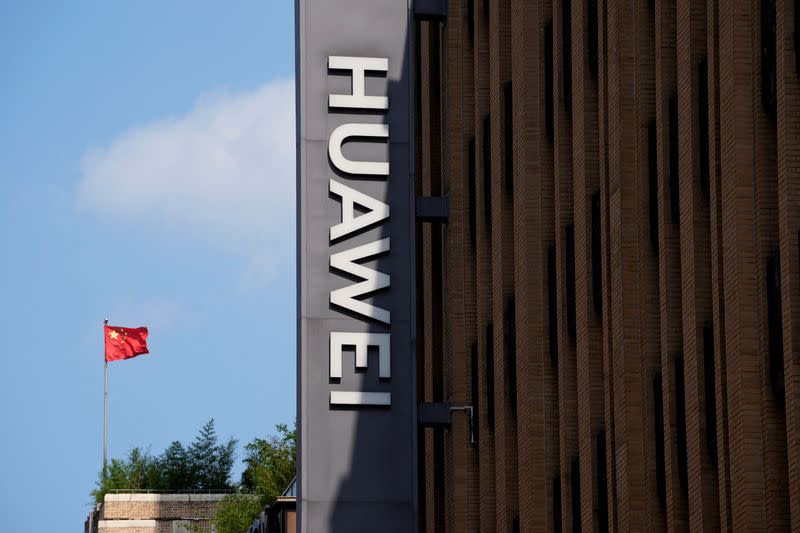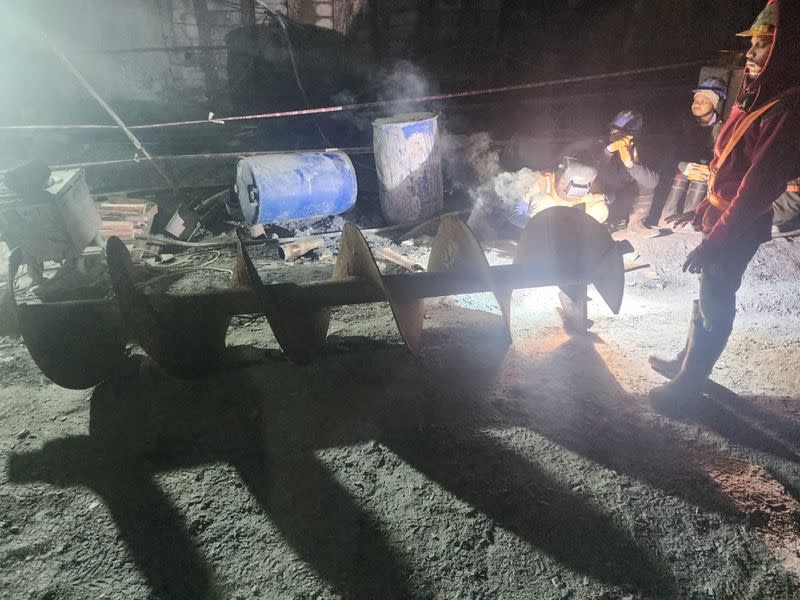LONDON (AP) — Earlier this year, the doctor who leads the World Health Organization’s efforts to prevent sexual abuse travelled to Congo to address the biggest known sex scandal in the U.N. health agency’s history, the abuse of well over 100 local women by staffers and others during a deadly Ebola outbreak.
According to an internal WHO report from Dr. Gaya Gamhewage’s trip in March, one of the abused women she met gave birth to a baby with “a malformation that required special medical treatment," meaning even more costs for the young mother in one of the world's poorest countries.
To help victims like her, the WHO has paid $250 each to at least 104 women in Congo who say they were sexually abused or exploited by officials working to stop Ebola. That amount per victim is less than a single day’s expenses for some U.N. officials working in the Congolese capital — and $19 more than what Gamhewage received per day during her three-day visit — according to internal documents obtained by The Associated Press.
The amount covers typical living expenses for less than four months in a country where, the WHO documents noted, many people survive on less than $2.15 a day.
The payments to women didn't come freely. To receive the cash, they were required to complete training courses intended to help them start “income-generating activities.” The payments appear to try to circumvent the U.N.'s stated policy that it doesn't pay reparations by including the money in what it calls a “complete package” of support.
Many Congolese women who were sexually abused have still received nothing. WHO said in a confidential document last month that about a third of the known victims were “impossible to locate.” The WHO said nearly a dozen women declined its offer.
The total of $26,000 that WHO has provided to the victims equals about 1% of the $2 million, WHO-created “survivor assistance fund” for victims of sexual misconduct, primarily in Congo.
In interviews, recipients told the AP the money they received was hardly enough, but they wanted justice even more.
Paula Donovan, who co-directs the Code Blue campaign to eliminate what it calls impunity for sexual misconduct in the U.N., described the WHO payments to victims of sexual abuse and exploitation as “perverse.”
“It’s not unheard of for the U.N. to give people seed money so they can boost their livelihoods, but to mesh that with compensation for a sexual assault, or a crime that results in the birth of a baby, is unthinkable,” she said.
Requiring the women to attend training before receiving the cash set uncomfortable conditions for victims of wrongdoing seeking help, Donovan added.
The two women who met with Gamhewage told her that what they most wanted was for the “perpetrators to be brought to account so they could not harm anyone else," the WHO documents said. The women were not named.
“There is nothing we can do to make up for (sexual abuse and exploitation)," Gamhewage told the AP in an interview.
The WHO told the AP that criteria to determine its “victim survivor package” included the cost of food in Congo and “global guidance on not dispensing more cash than what would be reasonable for the community, in order to not expose recipients to further harm.” Gamhewage said the WHO was following recommendations set by experts at local charities and other U.N. agencies.
“Obviously, we haven't done enough,” Gamhewage said. She added the WHO would ask survivors directly what further support they wanted.
The WHO has also helped defray medical costs for 17 children born as a result of sexual exploitation and abuse, she said.
At least one woman who said she was sexually exploited and impregnated by a WHO doctor negotiated compensation that agency officials signed off on, including a plot of land and health care. The doctor also agreed to pay $100 a month until the baby was born in a deal “to protect the integrity and reputation of WHO.”
But in interviews with the AP, other women who say they were sexually exploited by WHO staff asserted the agency hasn’t done enough.
Alphonsine, 34, said she was pressured into having sex with a WHO official in exchange for a job as an infection control worker with the Ebola response team in the eastern Congo city of Beni, an epicenter of the 2018-2020 outbreak. Like other women, she did not share her last name for fear of reprisals.
Alphonsine confirmed that she had received $250 from the WHO, but the agency told her she had to take a baking course to obtain it.
“The money helped at the time, but it wasn’t enough,” Alphonsine said. She said she later went bankrupt and would have preferred to receive a plot of land and enough money to start her own business.
For a visiting WHO staffer working in Congo, the standard daily allowance ranges from about $144 to $480. Gamhewage received $231 a day during her three-day trip to the Congolese capital Kinshasa, according to an internal travel claim.
The internal documents show that staff costs take up more than half of the $1.5 million the WHO allotted toward the prevention of sexual misconduct in Congo for 2022-2023, or $821,856. Another 12% goes to prevention activities and 35%, or $535,000, is for “victim support,” which Gamhewage said includes legal assistance, transportation and psychological support. That budget is separate from the $2 million survivors assistance fund, which assists victims globally.
The WHO’s Congo office has a total allocated budget of about $174 million, and its biggest funder is the Bill & Melinda Gates Foundation.
The U.N. health agency continues to struggle with holding perpetrators of sexual abuse and exploitation to account in Congo. A WHO-commissioned panel found at least 83 perpetrators during the Ebola response, including at least 21 WHO staffers. The youngest known victim was 13.
In May 2021, an AP investigation revealed that senior WHO management was told of sexual exploitation during the agency’s efforts to curb Ebola even as the abuse was happening but did little to stop it. No senior managers, including some who were aware of the abuse during the outbreak, were fired.
After years of pressure from Congolese authorities, the WHO internal documents note it has shared information with them about 16 alleged perpetrators of sexual abuse and exploitation who were linked to the WHO during the Ebola outbreak.
But the WHO hasn't done enough to discipline its people, said another Congolese woman who said she was coerced into having sex with a staffer to get a job during the outbreak. She, too, received $250 from the WHO after taking a baking course.
“They promised to show us evidence this has been taken care of, but there has been no follow-up," said Denise, 31.
The WHO has said five staffers have been dismissed for sexual misconduct since 2021.
But in Congo, deep distrust remains.
Audia, 24, told the AP she was impregnated when a WHO official forced her to have sex to get a job during the outbreak. She now has a five-year-old daughter as a result and received a “really insufficient” $250 from WHO after taking courses in tailoring and baking.
She worries about what might happen in a future health crisis in conflict-hit eastern Congo, where poor infrastructure and resources mean any emergency response relies heavily on outside help from the WHO and others.
“I can’t put my trust in (WHO) anymore,” she said. “When they abandon you in such difficulties and leave you without doing anything, it’s irresponsible.”
___
AP journalists Krista Larson in Dakar, Senegal, and Jamey Keaten in Geneva contributed to this report.














